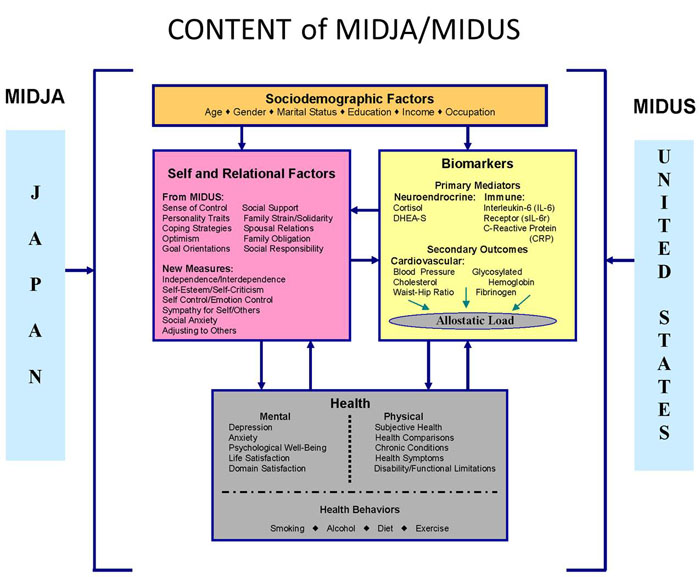In 2012, with additional support from NIA, a longitudinal follow-up of the MIDJA sample was completed. The data collection for this second wave (N=657) largely repeated the baseline assessments. The central objective was to conduct comparisons of longitudinal data available from the Japanese sample (MIDJA) and the United States sample (MIDUS) to test the hypothesis about the role of psychosocial factors in predicting health changes (including biomarkers) in both cultural contexts. Cultural influences on age differences in health and well-being were also of interest.
MIDJA data are publicly available at the Inter-university Consortium for Political and Social Research (ICPSR) as part of the MIDUS collection.
